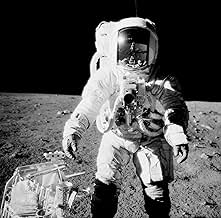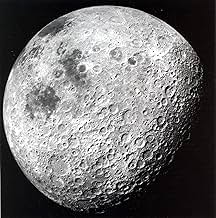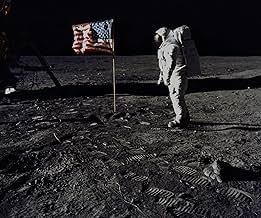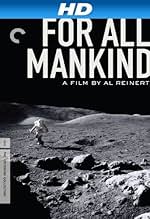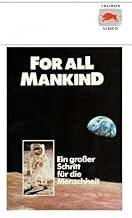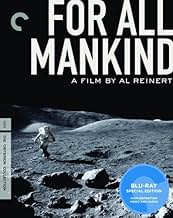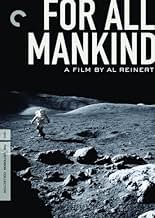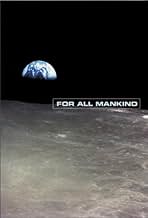IMDb RATING
8.1/10
6.7K
YOUR RATING
An in-depth look at various NASA moon landing missions, starting with Apollo 8.An in-depth look at various NASA moon landing missions, starting with Apollo 8.An in-depth look at various NASA moon landing missions, starting with Apollo 8.
- Nominated for 1 Oscar
- 3 wins & 3 nominations total
Jim Lovell
- Narrator - Apollo 8, Apollo 13
- (voice)
- (as James A. Lovell Jr.)
Ken Mattingly
- Narrator - Apollo 16
- (voice)
- (as T. Kenneth Mattingly II)
Russell Schweickart
- Narrator - Apollo 9
- (voice)
- (as Russell L. Schweickart)
Eugene Cernan
- Narrator - Apollo 10, Apollo 17
- (voice)
- (as Eugene A. Cernan)
Charles Conrad
- Narrator - Apollo 12
- (voice)
- (as Charles P. Conrad Jr.)
Richard Gordon
- Narrator - Apollo 12
- (voice)
- (as Richard F. Gordon Jr.)
Alan Bean
- Narrator - Apollo 12
- (voice)
- (as Alan L. Bean)
Jack Swigert
- Narrator - Apollo 13
- (voice)
- (as John L. Swigert Jr.)
Stuart Roosa
- Narrator - Apollo 14
- (voice)
- (as Stuart A. Roosa)
James Irwin
- Narrator - Apollo 15
- (voice)
- (as James B. Irwin)
Charles Duke
- Narrator - Apollo 16
- (voice)
- (as Charles M. Duke Jr.)
Harrison Schmitt
- Narrator - Apollo 17
- (voice)
- (as Harrison H. Schmitt)
Buzz Aldrin
- Self
- (archive footage)
Bill Anders
- Self
- (archive footage)
Neil Armstrong
- Self
- (archive footage)
Stephen Bales
- Self
- (archive footage)
- (as Steve Bales)
Frank Borman
- Self
- (archive footage)
Storyline
Did you know
- TriviaThe staging footage was captured because NASA wanted to document the flight process of an unmanned Saturn flight for feedback in case there was a failure for engineers to look at footage to see what went wrong. Cameras were mounted in strategic locations, kicking on at critical moments to document the staging process for less than half a minute. After completion, the light-tight canisters containing the exposed film were jettisoned, dropping to earth with homing beacons and parachutes inside protective heat shields. Air Force C-130 transport planes, towing gigantic nets, recovered the canisters in the southern Atlantic Ocean.
- GoofsThe opening of the documentary incorrectly states that: "During the four year between December 1968 and November 1972, there were nine manned flights to the moon." The last lunar mission, Apollo 17, took place in December 1972.
- Quotes
Charles M. Duke Jr.: The only bad part about zero gravity in Apollo was goin' to the bathroom. We had a very crude system. For your feces it was a bag, and you put this bag in the right position. So you go, but the only thing is that nothing goes to the bottom of the bag in zero gravity.
- Crazy creditsFilmed on location by the United States National Aeronautics and Space Administration.
- SoundtracksSirens
Courtesy of Opal Records (Music For Films III)
Written and Performed by Daniel Lanois and Brian Eno
Licensed by Upala Music/Hamstein (BMI)
Featured review
This was effective for this viewer. Usually what that means in cases like this is that it made me cry.
The hook is that it reviews its subject through the eyes of the astronauts. I was wary of this. I got involved in the program later, during the beginning of the shuttle era and even then the astronauts were pretty much there only to have been taken there. They were chosen some of them for how good they looked on newsprint.
The magic of the program and its heroes were a few visionaries and an army of competent engineers.
Yet it was effective because we see the story through the eyes of witnesses. There role here is simply as witness, and if you were alive during this time, you will be impressed at how it affects you.
There were all sorts of paths that could have been followed in this. The quest of man to explore; the mysteries of the unknown; the vast game being played by two enemies to demonstrate superiority of ideology; the hidden weapons programs.
They cover all these slightly except that last, and that's excusable because these witnesses saw none of that. But the story that dominates is the Kennedy one. Its hard to imagine today, but we loved our president and he deserved it. He was intelligent and articulate. His advisers came off not as louts or bullies, but men (and a few women) smart enough for difficult times. He was the Peace Corps president.
Kennedy promised to go to the moon and return without consulting anyone at NASA, and riding on the crest of a national enthusiasm for science and hardware. The nation really was engaged. And then he was killed, and with our rising self-doubt (Vietnam, race) we decided that as a people we owed it to him, or what he stood for. So when it happened, and the world watched, re affirmed the man and what he stood for. It was a good feeling, not pride as much as wonder about who we discovered ourselves to be.
This will evoke that same feeling again, the original tears, followed by tears of disappointment at the massive collapse of esteem which followed. A serious of botched opportunities to be worthy of the accomplishment.
Its an effective documentary in that regard, all the more so since everything was designed to be photographed, and was. If you really want to learn of this program, you need to go elsewhere, But this delivers on the promise.
Ted's Evaluation -- 3 of 3: Worth watching.
The hook is that it reviews its subject through the eyes of the astronauts. I was wary of this. I got involved in the program later, during the beginning of the shuttle era and even then the astronauts were pretty much there only to have been taken there. They were chosen some of them for how good they looked on newsprint.
The magic of the program and its heroes were a few visionaries and an army of competent engineers.
Yet it was effective because we see the story through the eyes of witnesses. There role here is simply as witness, and if you were alive during this time, you will be impressed at how it affects you.
There were all sorts of paths that could have been followed in this. The quest of man to explore; the mysteries of the unknown; the vast game being played by two enemies to demonstrate superiority of ideology; the hidden weapons programs.
They cover all these slightly except that last, and that's excusable because these witnesses saw none of that. But the story that dominates is the Kennedy one. Its hard to imagine today, but we loved our president and he deserved it. He was intelligent and articulate. His advisers came off not as louts or bullies, but men (and a few women) smart enough for difficult times. He was the Peace Corps president.
Kennedy promised to go to the moon and return without consulting anyone at NASA, and riding on the crest of a national enthusiasm for science and hardware. The nation really was engaged. And then he was killed, and with our rising self-doubt (Vietnam, race) we decided that as a people we owed it to him, or what he stood for. So when it happened, and the world watched, re affirmed the man and what he stood for. It was a good feeling, not pride as much as wonder about who we discovered ourselves to be.
This will evoke that same feeling again, the original tears, followed by tears of disappointment at the massive collapse of esteem which followed. A serious of botched opportunities to be worthy of the accomplishment.
Its an effective documentary in that regard, all the more so since everything was designed to be photographed, and was. If you really want to learn of this program, you need to go elsewhere, But this delivers on the promise.
Ted's Evaluation -- 3 of 3: Worth watching.
- How long is For All Mankind?Powered by Alexa
Details
- Release date
- Country of origin
- Language
- Also known as
- National Geographic: For All Mankind
- Filming locations
- Sea of Tranquility, The Moon, Space(Apollo 11 landing site)
- Production companies
- See more company credits at IMDbPro
Box office
- Gross US & Canada
- $770,132
- Opening weekend US & Canada
- $33,777
- Nov 5, 1989
- Gross worldwide
- $770,366
- Runtime1 hour 20 minutes
- Color
- Sound mix
- Aspect ratio
- 1.37 : 1
Contribute to this page
Suggest an edit or add missing content




